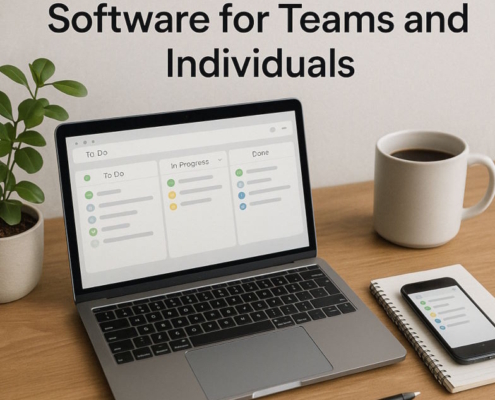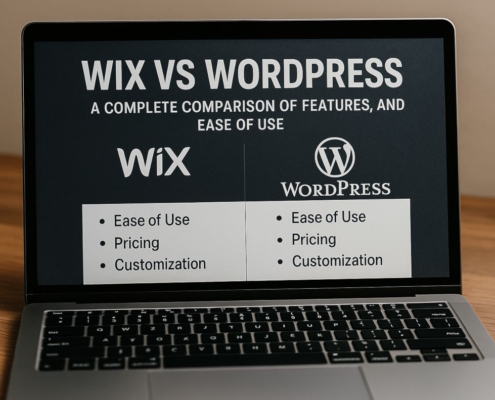Introduction
Customer relationship management, or CRM, is a system that keeps real estate agents in close contact with buyers and sellers, handles all correspondence and leads, and generates repeat business or recommendations.
Based on our most recent research, the top CRMs for real estate have tools for bulk email marketing, lead follow-up, and extensive document archiving. Although you might choose a basic CRM system, you should also think about options tailored to the real estate industry. Our team offers you the best 10 real estate CRMs based on our own personal testing of 27 products. To help you decide your next important software choice, we’ve highlighted the best features of each package below.
The Ideal CRM for Real Estate: Our Top Picks
1. Monday Sales CRM: Best CRM for Real Estate project management
What we like: Monday.com gives you a comprehensive, personalized workspace by integrating sales, marketing, and project management.
What makes Monday.com exceptional
For whom is it the best?
Professionals in real estate who have a clear idea of how they intend to organize their sales campaigns require a versatile platform to do it.
Alternatives
- With its user-friendly layout and fundamental features, Pipedrive is another common sales CRM that is simple to master.
- Similar to Pipedrive, LionDesk manages tasks, but it is tailored to the real estate industry.
Pros
- Being able to create your platform from the ground up
- Numerous board views that can be customized
- Perfect for work management and sales tracking
Cons
- Not that good at handling contacts
- Mass emailing requires an upgrade.
- CRM that is not exclusive to the real estate industry
Our view
Although Monday.com doesn’t have a real estate-specific CRM, real estate professionals may find it useful due to the degree of customization available in its marketing CRM platform. The “start from scratch” feature was there when we first launched the platform. This can be useful if you’ve got an understanding of how you want to arrange your leads, deals, and tasks. Additionally, you have the option to choose which views to utilize to see your process.
Nevertheless, if you have a large client list, Monday.com contact management could be challenging. Your current contacts can be imported in bulk, although clicking on each individual contact entry only displays manually added activity.
Messages to these contacts are also restricted. The Pro & Enterprise programs are the only ones that offer mass messaging. Even yet, there are still restrictions on the messages you can send, their customization, and other aspects. Thus, in order to execute your marketing campaigns, you might need to link with other technologies, like SMS or email software.
2. Salesforce: Best CRM for large-scale brokerages
What we like: Salesforce’s broad range of customization possibilities and scalability suit the intricate requirements of major real estate brokerages.
What makes Salesforce exceptional
For whom is it the best?
Real estate agents in a big agency that manages a lot of customer data require a strong CRM.
Alternatives
- A CRM with an emphasis on marketing, HubSpot can manage data for medium-sized brokerages.
- A CRM for real estate, Market Leader also manages incoming leads and existing deals with a sales-focused strategy.
Pros
- Perfect for extensive client lists
- Capacity to manage substantial amounts of sales data
- Comprehensive contact details cards
Cons
- Comprehensive contact details cards
- Not as appropriate for small groups
- A steep learning path
- CRM that is generic and not real estate-specific
Our view
One well-known CRM solution is Salesforce. Indeed, it emerged as the CRM that our survey participants utilized the most frequently. Teams who wish to keep a lot of customer data can use Salesforce. For instance, you can develop thorough client profiles with comments, activity tracking, lead scoring, and more.
After utilizing the Salesforce free trial, our primary conclusion was that the user experience was a little complicated. On our own, we had trouble figuring out where to look for several features. When Salesforce agents noticed that we had joined up, they took the initiative to contact us and offer assistance. Customer service is also easily accessible by phone and chat. Salesforce is likely to have a learning curve, regardless of your degree of experience with CRM software.
3. Pipedrive: Best for independent agents
What we like: Effective lead and transaction management is made simple for individual agents by Pipedrive’s user-friendly interface & visual sales funnel.
What makes Pipedrive exceptional
For whom is it the best?
Real estate agents hoping to join and begin utilizing a CRM immediately
Alternatives
- More customization is available with Zoho CRM for pros who are prepared to invest the time and energy necessary to configure a CRM to their precise specifications.
- Similar contact & transaction tracking functions are found in the real estate CRM Wise Agent.
Pros
- Easy-to-use UI for novices
- Client cards with comprehensive activity timelines
- Sales pipeline visualization
Cons
- More appropriate for keeping client data than for interacting with them
- CRM that is generic and not real estate-specific
Our view
Although it isn’t a real estate-specific supplier, Pipedrive’s comprehensive contact details pages would be useful for handling real estate clients. A chronology of all registered activities is included with every client entry, allowing you to record interactions and leave reminders or notes for later.
The activities tab was another feature we enjoyed during the platform’s test drive. You can examine a summary of your tasks here, including making a call to a client, setting up a showing, and creating an offer.
Pipedrive’s capabilities essentially end there. You can track your customer interactions and view your sales pipeline, but you still need a different tool to communicate with your clients. As a logical progression from keeping your list of contacts in a spreadsheet, this is why we suggest it for novices.
4. HubSpot: Best for marketing and sales features
What we like: HubSpot integrates automation, personalization, communication, and sales.
What makes HubSpot exceptional
For whom is it the best?
Real estate agents who want to handle all of their marketing and sales duties with a single piece of software
Alternatives
- In contrast to marketing, Monday.com is another powerful CRM for real estate that integrates project management and sales.
- Top Producer is a CRM for real estate that places a strong focus on marketing and communication, particularly emailing.
Pros
- CRM and marketing tasks combined
- Easy-to-use setup
- Scheduling client meetings
Cons
- Few instructions to aid in customization
- CRM that is generic and not real estate-specific
Our view
If you want a single tool to help you with both marketing and sales, we recommend HubSpot. If you’re prepared to invest the time to personalize it, it has a lot to offer even though it’s not specifically related to real estate. Particularly when it comes to establishing marketing channels and a sales pipeline, we discovered that the first setup procedure was straightforward.
You can upload your offers to the platform, link them to a stage, and specify the steps of the sales procedure. Using the platform, you can also design and oversee advertising campaigns, social media posts, text messages, and emails.
We were very impressed by the calendar and meeting features. After you and your client have decided on a time and day, you may send them your availability and set up a meeting. Additionally, you may connect your Outlook or Google calendars.
HubSpot’s evident drawback is the same as that of the other generic CRMs. Customizing it to meet your unique needs will take some time because it wasn’t made having real estate in consideration.
5. Zoho CRM: Ideal for customization
What we like: Zoho CRM is an easy-to-use CRM that can be tailored to your unique sales process.
What makes Zoho CRM exceptional
For whom is it the best?
Professionals in the real estate industry seeking a basic CRM without sophisticated project and task management
Alternatives
- With a little less focus on customization, Pipedrive provides comparable features.
- Though it is primarily made for real estate sales pipelines, LionDesk provides pipeline customization that is comparable to that of Zoho.
Pros
- Capacity to adapt to your needs
- Features for tracking deals are intuitive
Cons
- Customization-related learning curve
- CRM that is generic and not real estate-specific
Our view
You can customize Zoho CRM, another basic CRM program, to meet your real estate requirements. The deal monitoring interface, which allowed us to filter and adjust the view to examine the offers from various perspectives, was among the easiest-to-use interfaces we came across.
The integrated communication tools in Zoho were very appealing to us. You can set up SalesInbox to sort and filter messages according to client information. Leads, contacts in ongoing deals, and contacts not participating in active deals, for example, might all have their own sections. The call planner is an additional function that helps you remember future client calls by scheduling them on your calendar.
We were still convinced that Zoho CRM is made for general sales after evaluating all of these practical and distinctive features. In order to adapt it to their needs, any real estate person using it would need to perform some research and tweaking.
6. LionDesk: The most economical for agents
What we like: LionDesk is a great option for agents on a tight budget because it provides a wide range of functionality at a low price.
What makes LionDesk exceptional
For whom is it the best?
Professionals in home real estate seeking basic CRM capabilities with low learning curves and reasonable costs
Alternatives
- Another CRM designed specifically for the real estate industry is Wise Agent, which is mainly concerned with managing incoming leads.Real estate agents can utilize Zoho CRM, an all-around sales CRM featuring a transaction monitoring tool, for leads, properties, buyers, and sellers.
Pros
- Custom contact fields
- Platform for organizing, sending, and uploading videos, including property tours
- Made especially for the real estate industry
Cons
- Minimal personalization
- Views restricted to Kanban boards and listings
Our view
We found that adding contacts was simple when we used the LionDesk free trial. Both manually adding contacts and importing contacts in mass from a file are options. The custom fields you wish to add for every contact are also up to you.
After adding your contacts, you may interact with them using LionDesk’s marketing tools. The platform allows you to send emails, for instance. For sharing property tours or walkthroughs, there is even a location to upload, arrange, and transmit videos.
The main issue we had with LionDesk’s testing was that it didn’t provide many options for visualizing the sales pipeline. You can monitor sales in a Kanban-style layout in the transactions section, but it’s not very customizable—for example, you can add or remove pipeline stages, but you cannot rearrange existing phases or drag and drop deal cards from phase to phase.
7. Market Leader: Best for communication with clients
What we like: Accompanying its real estate leads platform, Market Leader provides a range of marketing and sales tools to help agents meet sales targets and maintain client relationships.
What makes Market Leader exceptional
For whom is it the best?
Professionals in real estate who want to send marketing emails and arrange client data
Alternatives
- Unlike Market Leader, which has a cap of 15,000 contacts, Top Producer is a comparable CRM for real estate that allows for an infinite number of contacts.
- Bigger real estate brokerage firms that require more thorough lead & sales tracking can benefit from Salesforce.
Pros
- Tools for creating listing alerts via email
- Tools for tracking customer behavior to display which properties your clients are interested in and favoring
- Made especially for the real estate industry
Cons
- Minimal personalization
- Not as appropriate for big real estate companies
Our view
For real estate brokers with a particular emphasis on marketing, Market Leader serves as a CRM platform. This platform’s capability to link to your website in order to monitor and react to customer behavior is among its most distinctive features. To find out which properties on the website a customer has visited or favorited, for instance, you may go to their profile. Then, you can utilize this information to customize the email listing notifications you give them.
A video summary of the platform’s primary features was sent by the Market Leader staff when we requested a demo. The video demonstrated that every new lead that is generated by an agent’s website is marked as “New” and put into the contact database. To arrange contacts according to their stage in the sales process, you may then manually modify the tag. But that’s basically where you can really customize your contact list. Your contact list’s appearance can be customized using a small number of specific fields, tags, & other options.
8. Wise Agent: Ideal for organizing leads and following up
What we like: Wise Agent is excellent at sorting and organizing leads, and it has strong features for monitoring and contacting prospective customers.
What makes Wise Agent exceptional
For whom is it the best?
Real estate agents who want to handle leads, customers, and properties in a single place
Alternatives
- A comparable CRM for real estate having a greater number of integrations is LionDesk.
- Although Pipedrive isn’t specifically for real estate, it does include Kanban boards along with additional tools for visualizing your sales pipeline.
Pros
- Storage for comprehensive property data
- Handling incoming leads
- Made especially for the real estate industry
Cons
- Few integrations
- Minimal personalization
Our view
Wise Agent is one more real estate CRM that landed on our list because of its easy-to-use features for property organization. During our examination of Wise Agent’s free trial, we observed how comprehensive the property data cards were. You can add descriptions to each of the property’s rooms. The lockbox codes can also be kept here.
Considering the variety of methods for capturing and storing leads, this feature is also noteworthy. For example, you can utilize the platform to design landing pages and sign-up forms that you can use on your website, emails, and other correspondence.
Nevertheless, there aren’t many integrations outside of linking these lead sources. The three that caught our attention were Facebook, Constant Contact, and Mailchimp. Furthermore, Wise Agent has limitations when it comes to personalizing and displaying the sales funnel.
9. Top Producer: Ideal for IDX & Listing Management
What we like: Top Producer offers powerful capabilities for maintaining and marketing real estate properties, and it interfaces with MLS listings with ease.
What makes Top Producer exceptional
For whom is it the best?
Real estate agents in residential areas who want to streamline their customer targeting
Alternatives
- Another comparable CRM for real estate that emphasizes lead development is Market Leader.
- Although it isn’t focused on real estate, HubSpot offers both internal and external marketing tools for contacting leads.
Pros
- Property segmentation between closings and listings
- An AI-powered smart tool to find prospective sellers
- Made especially for the real estate industry
Cons
- Insufficient reporting
- Advanced marketing initiatives may need integrations.
Our view
Another CRM for real estate is Top Producer. We found its listing management tools to be particularly comprehensive and user-friendly during our evaluation. We discovered that the transaction tab is where properties reside. They are arranged according to closings and listings, and each one is linked to a system contact.
We also observed a number of distinctive marketing tools. One is that the platform allows you to send listing notifications directly. The top twenty percent of householders in a neighborhood who are most probable to sell are identified by an AI-powered Intelligent Targeting tool, which then contacts them to generate new leads.
With Top Producer, there aren’t many ways to report or email issues. In-depth reports are not available, however, you may view basic sales funnel statistics like the number of clients in each category. This also applies to emailing. Although the platform is capable of sending simple emails, it is unable to generate automated marketing emails.
10. Follow Up Boss: Ideal for teams with multiple agents
What we like: Follow-up Boss offers team-oriented capabilities that make it easier for several agents to collaborate and share leads.
What makes Follow Up Boss exceptional
For whom is it the best?
Dedicated real estate teams serving a single client base
Alternatives
- Monday.com isn’t made for CRM particularly, but it does have easy-to-use Kanban layouts for teams that desire more customization than Follow Up Boss provides.
- While LionDesk provides more sophisticated real estate lead administration tools for small teams, it is less appropriate for bigger real estate teams.
Pros
- Superb contact profiles that make communicating with clients simple
- Collaborative tools and agent leaderboards
- Pricing plans created for big or expanding real estate teams
Cons
- Insufficient pipeline management in contrast to others
- Expensive in comparison to certain rivals
Our view
In the latter part of 2023, Zillow bought Follow Up Boss, another CRM program made especially for real estate companies. We discovered that it was easy to use and perfect for cooperative teams working in residential, commercial, and industrial properties. Agent leaderboards and round-robin lead assignments can be automatically put up by leaders for fun rivalry. With the comprehensive customer profiles provided by Follow Up Boss, tracking and sharing client information is very simple.
In addition to its collaborative and team-oriented attributes, Follow Up Boss has all the tools a team might possibly need for communicating with clients. The fact that every customer profile has an inbox for receiving client messages struck us and made it simple for agents to concentrate on high-priority discussions.
All things considered, we believe Follow Up Boss is a wise option for real estate companies looking to put client communication first.
Top Features of Real Estate CRM
We interviewed real estate practitioners as part of our study to find out which CRM features they find most useful for their daily tasks. In-depth client interaction tracking, smooth integration, and user-friendly contact management were all stressed.
To find out which aspects people valued most, we also polled 200 users of conventional CRM programs. Sales funnel visualization, mass emailing, and task management were the next most popular categories, with document storage coming in first.
In order to help you understand what to look for, we have broken down a few of the aspects that respondents thought were crucial below. To assist you in testing these functionalities, a number of CRM suppliers provide free plans, trials, plans, and demos.
1. Contact Management
The main purpose of CRM software is to manage customer data. The tool you select should give you a single location to manage all of your client data. Basic contact information like address and phone number can be stored, and emails, calls, and other activities can be tracked. Perhaps a place to write comments or notes for further reference is also included.
Another crucial feature is the ability to construct custom fields to hold special bits of data. Approximately 95% of participants in our most recent study considered custom fields to be very or extremely significant in a CRM.
2. Task Management and Interaction Tracking
The CRM’s interaction tracking feature allows you to control how and when you contact your clients. An activity timeline might help you organize your future interactions by revealing what hasn’t and has done well in the past. In a related vein, task management involves scheduling meetings, emails, phone calls, and other tasks on your to-do list.
There are generic tabs to examine task management and interaction tracking at an upper level in the majority of the CRM solutions that we reviewed. They also have a means to view the assignments and tasks that are related to each contact listing. By doing this, you can make sure that no clients are overlooked.
3. Integrations
Check to see whether your CRM can interface with any other software you may be utilizing.
All of the services on our list include email interfaces, so you can import contacts from Outlook and Gmail or sync them. Another common CRM integration is marketing software for email, social media, and SMS, which enables you to monitor campaign data and client communications on a single platform.
Other integrations are typically not always readily available. For example, the app marketplace of Top Producer has over 150 connectors, whereas HubSpot’s marketplace has over 1,500. When comparing ordinary CRMs to real estate CRMs, you’ll often notice that the latter have fewer possibilities.
4. Pipeline Visualization
The steps that prospects take when interacting with and purchasing from you are outlined in your sales pipeline. The majority of CRM platforms allow you to personalize your pipeline by choosing which steps to include. After that, you can arrange your leads and contacts according to their stage.
Once your pipeline is configured, you need a means to see it. A visual aid can assist you in determining the speed at which clients are progressing via the funnel, the problems preventing sales from proceeding, and other information that you can utilize to improve your CRM approach. A Gantt chart or a Kanban board are two examples of the visualizations found in the majority of CRMs. Generally speaking, real estate CRMs have fewer views than typical sales CRMs.
Other things to look for when assessing real estate CRM
In addition to standard functions, there are a lot of other considerations to evaluate when selecting a real estate CRM. AI, user-friendliness, and customer service are a few secondary factors.
1. AI features
Experts in all fields are particularly concerned about artificial intelligence. In our most recent poll, more than 90% of participants stated that AI tools have become a very significant or fairly important component of a CRM’s feature set. Think about the ways in which AI-powered technologies could simplify some of your everyday chores.
2. Customer support
Customer service was rated as the third most crucial CRM component in our poll, behind customization and special capabilities (such as AI tools). For any issues you may have while onboarding, having access to customer assistance is crucial since Salesforce and other sophisticated CRM programs have an extensive learning curve.
Think about the contact channels you want to use, such as chat, email, and phone. Additionally, consider those networks’ hours. For instance, are they accessible only during business hours or around the clock? Remember that availability typically varies depending on the plan you select.
3. Reporting & Analytics
The sophisticated reporting features that typical sales CRMs offer are absent from many realtor CRMs. They do, however, occasionally monitor particular, property-specific indicators, such as forecasting and commission reporting. Looking for customization is what you desire when it comes to installing the reporting dashboard. The metrics, graphs, and charts you wish to monitor ought to be addable.
4. Workflow & Lead automation
Automating procedures to save effort on administrative duties is one of the main justifications for putting CRM software into place. You can typically automate the sending of certain messages at specific times with CRMs that have marketing functionality, like HubSpot. Furthermore, a lot of CRM applications have the ability to generate or link to lead sources. They could design a sign-up form, for instance, which you could post on your web page and utilize to collect leads.
Each program has a different setup procedure for these automations, thus user-friendliness is also important to consider. However, you can often save a great deal of effort and time by tweaking the steps for setting up automated operations.
5. Simple Usability
In the end, you will be better off using CRM software that you are familiar with. A platform may have many features, but the usefulness of those functions depends on your ability to use and navigate the interface. In general, CRMs with high feature sets are harder to use than those with low feature sets. In order to determine whether that is the situation for the CRM you are thinking about, you should test that assumption by registering for a trial period, free plan, or demo.
Summing up
For brokers and agents in the real estate industry, a CRM may create all the difference. You can monitor to-do lists, manage customer information, and improve client connections with the appropriate ones.
It takes some study to select a CRM. We have tested and ranked well-known services to get you started on that process. LionDesk won because of its extensive feature set and easy-to-use platform, which were created especially for professionals in real estate. Additional real estate services include Top Producer for listing management, Market Leader for client communications, and Wise Agent for lead organization.































